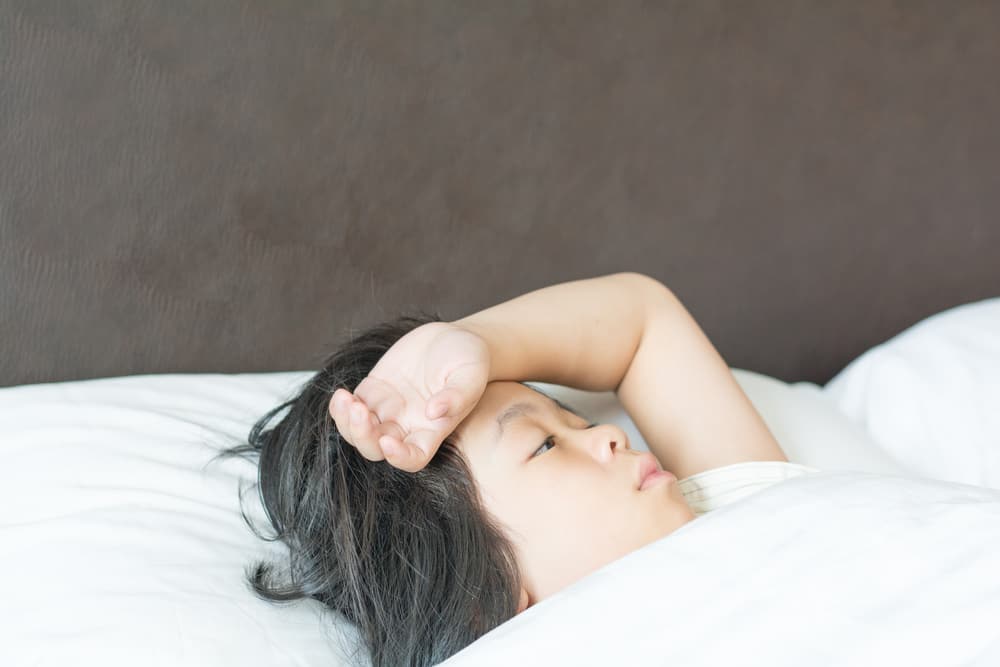Contents:
- Medical Video: How to Help a Child with Autism
- What causes autism children to have trouble sleeping?
- What can parents do to help children with autism sleep better?
- Children are still having trouble sleeping too, what should be done?
Medical Video: How to Help a Child with Autism
Children with autism find it harder to sleep well than other children. In fact, insomnia is experienced by 40-80 percent of children who have autism. What causes autism children to have trouble sleeping, and what should parents do to help children to sleep soundly? Check out the full info in this article.
What causes autism children to have trouble sleeping?
There are many factors that play a role in causing children with autism having difficulty sleeping soundly. The most common are disorders of the production of the hormone melatonin which triggers sleepiness.
Normally, the level of melatonin increases at night and falls during the day. But in children with autism the opposite is true. The production of the hormone melatonin is influenced by certain amino acids in the body. In children with autism, these amino acid levels are not balanced so that melatonin production becomes higher during the day and drops dramatically at night. As a result, their sleep cycle is different from most children.
This child's biological clock chaos can also be caused by the side effects of the drugs he used during his autism therapy. Some medications for dealing with autism, ADHD, antidepressants, corticosteroids, and anticonvulsants can cause children insomnia.
Or, this can also come from excessive stimulation that the child receives right before bedtime. For example from too long playing, or symptoms of restless leg syndrome or sleep apnea that can be experienced by some children with autism. Moreover, children with autism are also more sensitive to stimuli from the surrounding environment,like sound or touch. So the slightest sound or any light touch is easy to make a child wake up during sleep and it is difficult to go back to sleep.
In addition, children with autism are also easier feeling stressed and anxious compared to other children. Stress can increase the hormone cortisol in the body which makes children more alert and nervous. This excessive stimulation makes children feel they do not want to sleep.
What can parents do to help children with autism sleep better?
Every child needs different sleep times. Children aged 1-3 years usually need to sleep for at least 12-14 hours each day. Children aged 4-6 years usually need sleep for 10-12 hours each day. Children aged 7-12 years usually need to sleep for 10-11 hours every day.
For children to be able to fulfill this sleep time every night, you must establish a disciplined sleep routine for children. Children with autism tend to like things that have been arranged, they like order, and do not like it if their routine suddenly changes.
So, make hours of sleep and wake up disciplined for children every night, for example, go to sleep at 8pm and wake up at 6am. Continue to apply this time even on weekends and school holidays. This routine helps the child's body and mind get used to sleep and wake up at the appointed time. We recommend that the child already get ready to sleep 30-60 minutes before bedtime. This means, if the child's sleep time is 8pm, he must have finished dinner, bathe and brush his teeth, drink milk, read a fairy tale, or other sleep routines at least 7.45 at night.
Create a cool, dark and quiet bedroom free from distractions and chaos (including toys, tv and electronic gadgets). Make sure you close the window tightly, as well as the curtains, so that it doesn't wake up when there is light coming in from the window or other things that can disturb it. You can also put a carpet on the floor of his bedroom to minimize the sound of footsteps when you walk in. Also make sure the room door has no creak when opened or closed.
Lastly, don't give your child a sweet drink, which contains caffeine, or foods that contain sugar before going to bed. Also make sure children get enough physical activity during the day so they don't have excessive energy at night.
Children are still having trouble sleeping too, what should be done?
Sleeping pills are very, very rare, and actually not recommended, to be the first solution if an autistic child is having trouble sleeping. We recommend that you immediately consult a doctor if your child is still difficult to sleep soundly.
You can record your child's sleep patterns for a week to find out how many hours he has slept and when exactly your child sleeps. Also note what happens during sleep, including snoring, changes in breathing patterns, unusual movements, or difficulty breathing. This can help you to understand the child's sleep patterns. You can also take this note when you go consult this with your doctor.












